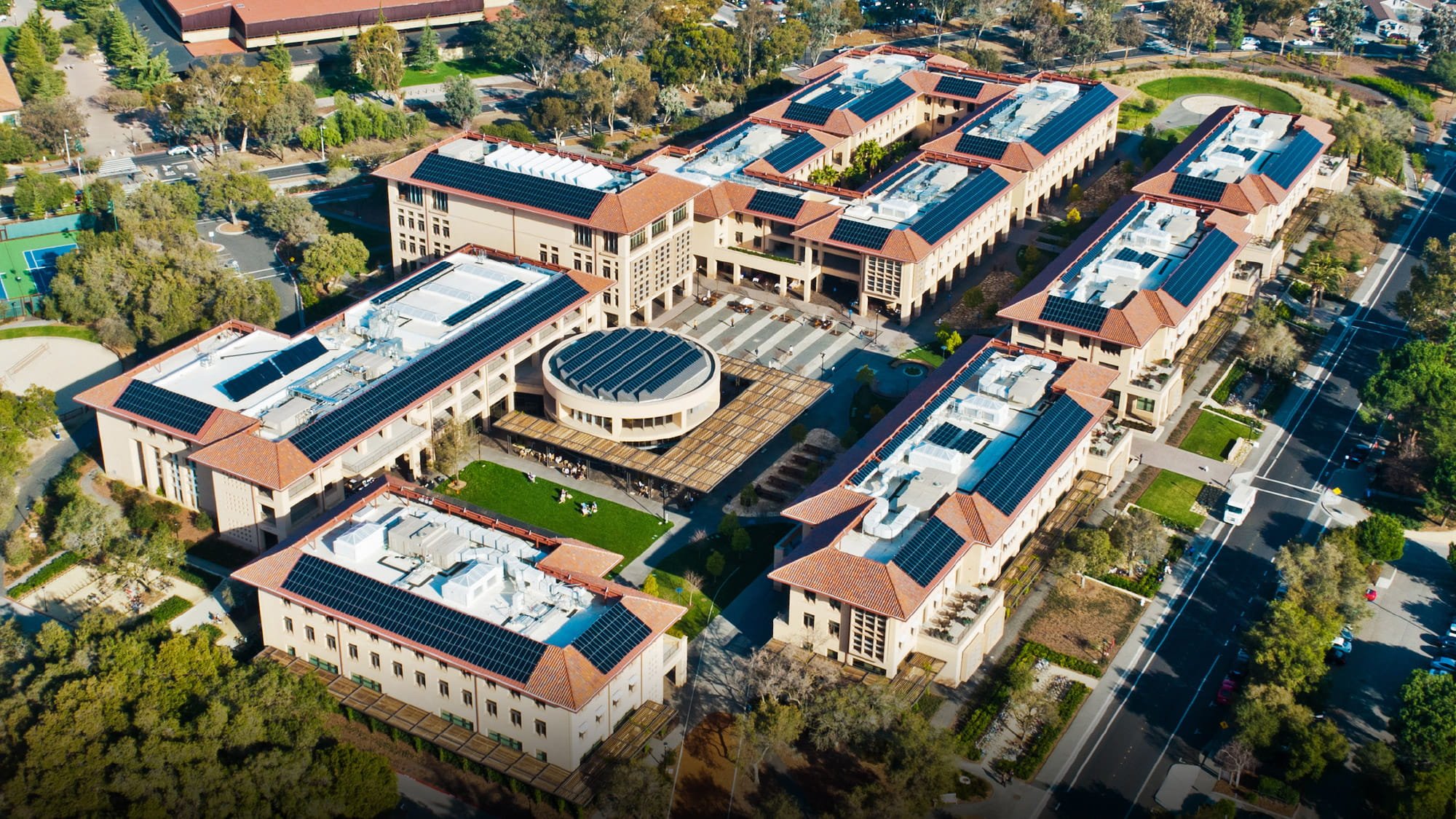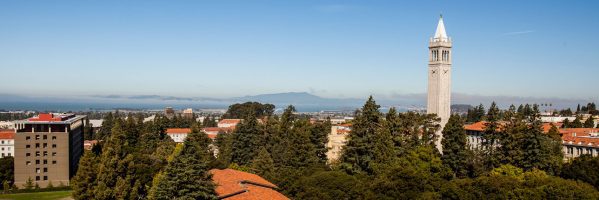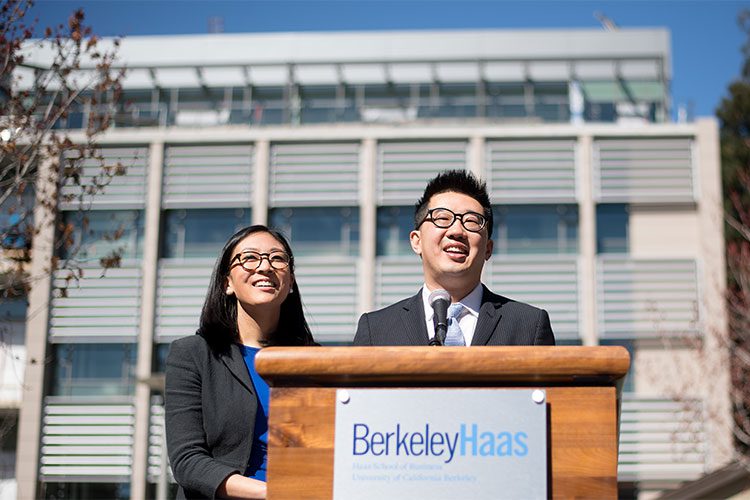Financial Times Ranks the Top MBAs for Entrepreneurs

Leading entrepreneurs in the business world today can often be seen as trailblazers, standing strong and independent in an often cutthroat world. What isn’t seen as often is the kind of support—whether financial capital or mentorships—that can help get an idea off the ground. In recent years, business schools and MBA programs around the globe have made this kind of support for new businesses a core part of their operation, often offering entrepreneurship majors, business pitch competitions, startup incubators and more.
Each year, The Financial Times releases their ranking of the best MBA programs for entrepreneurship, helping up-and-coming entrepreneurs to make informed choices about the best program for their career and startup goals. Its latest ranking, for 2018, has just been released.
The 2018 ranking of the top MBA’s for entrepreneurship compiled fifty schools from around the world. A number of factors went into determining which schools would make the grade, including the percentage of graduates who started a company after earning their degree, percentage of female entrepreneurs, the extend to which funding from the school or from the school’s alumni network helped in the creation of new businesses, and more. These factors combined would help decide in what position a school would fall on the ranking.
This year, schools in the United States took the top three spots on the list: the Stanford Graduate School of Business, the F.W. Olin Graduate School of Business at Babson College, and the Tuck School of Business at Dartmouth College. Two UK business schools—the Lancaster University Management School and the Cass Business School—rounded out the top five.

Despite dipping numbers of students, the Stanford Graduate School of Business entrepreneurship program is still the top-ranked in the world, according to the Financial Times.
At Stanford, although it still ranked as the best school for entrepreneurship globally, there was actually a significant drop since in the number of students starting a business within three years of graduation. This year, it was just 22 percent of students compared with last year’s 36 percent. Babson College’s Olin Graduate School of Business also witnessed a drop; from 52 percent last year to 37 percent in 2018.
One explanation for the drop, however, is not that interest in entrepreneurship is declining, but instead being taken on more as a ‘side hustle’ than a full-time career. This was certainly the case for Samantha Penabad, a former strategy manager at Accenture and MBA at Berkeley’s Haas School of Business, who has been working on a digital donation platform called GivingFund. Although she didn’t intend on becoming an entrepreneur when she started business school, tutors at the university helped her to develop a business plan and a fellow student with finance experience joined as a co-founder. The service is scheduled to launch later this month.
But GivingFund remains a side job for Penabad, who will be taking on a full-time job in strategy and operations at Google in New York after graduation. As a result, someone like Penabad will be not be included in data for students starting businesses after graduation, but among those accepting full-time jobs. Students pursuing similar paths—working full-time but starting businesses on the side—may help explain the dip in entrepreneurship that many MBA programs are witnessing.
One reason behind this trend may be the fact that many students see a full-time role as just one step to eventually starting their own company. By putting their skills to work at a top company like Amazon or Google, students are able to more quickly pay off their student loans, which means eventually starting a business debt free. Companies like Amazon also may seek out those with entrepreneurial experience, because it demonstrates an attractive leadership quality.
“We welcome applicants with an entrepreneurial spirit,” says Amazon’s senior manager of campus recruiting, Dee Clarke. “They are given the ownership over their work, like they would [in] their own business, but within a global support network that provides added guidance and support.”
Guthrie Jones, an MBA at London’s Cass Business School, holds a similar philosophy. Although he had no intention of getting into entrepreneurship, he couldn’t stop thinking about one particular business idea and decided he’d have to pursue it. Guthrie believes his company, Icepick, which lets people rent out space on their hard drives, has the potential to become a global business. Still, if he right opportunity for a salaried role came up after graduation, he would gladly shift his plan to the side.
Nevertheless, student interest in studying entrepreneurship as part of their MBA has grown at schools like Cass. Part of this may be the result of Cass’s £10m investment fund, which has not only supported new MBA start-ups but has also trained students in the process of investing.
Financial Times MBA Entrepreneur Ranking (2018)
- Stanford Graduate School of Business
- F.W. Olin Graduate School of Business (Babson)
- Tuck Business School (Dartmouth)
- Lancaster University Management School
- Cass Business School (City University)
- Otto Beisheim School of Management (WHU)
- IMD Business School
- Saïd Business School (Oxford)
- Harvard Business School
- Judge Business School (Cambridge)
Berkeley Haas Opens Fall 2017 With Its Largest Full-Time MBA Class Ever and New Building

Like many top business schools this time of year, the Haas School of Business at the University of California at Berkeley is welcoming its incoming class of MBA students—but at Haas it’s a bigger group than ever before moving into brand-new digs that promise to be among the greenest in the nation.
There are 284 students in the entering class—32 more than last year—which brings what has long been the smallest leading business school more in line with some of its peers. Plans for next year include additional expansion, to a class size of 300. The grand opening of a new academic building—in progress for the past decade—made increasing the class size possible.
“The intimacy of the class is really an important part of what Haas is about,” Dean Richard Lyons acknowledged in a June interview with Clear Admit. But at just 250 students, where the school has hovered for many years, it has been a gross outlier—a mere third the size of Wharton and not even a third the size of Harvard. “Part of the reputation of the school is a function of its scale, and there are times where you are just not at the right reputational scale—you’re too small,” Lyons continued. “It’s a super intimate experience—there’s no question about that—but target companies want to go to a place where there are enough people graduating that they can send a team of recruiters, for example. If you are too small you are below the threshold.”
“We Don’t Want to Lose the Smallness That Makes Us Unique”
Precisely because the intimacy and close-knit nature of Haas is such an integral part of its culture, the administration, including the admissions team, has approached the process of increasing the class size carefully and thoughtfully. “I think people would be surprised by the amount of care that has been taken to consider potential ramifications,” Peter Johnson, assistant dean for the full-time MBA program and admissions, tells Clear Admit, adding that his team considered necessary adjustments of everything from budgets to graduate student instructors, program office staff to career coaches. “We have been very intentional about it because we don’t want to lose the level of smallness that makes us unique. A lot of our students were very concerned that it not change the experience for future students.”
Not only is the incoming class larger than any before it, it is also one of the strongest academically, Johnson says. Average GMAT scores and GPAs have risen over each of the past three years. The average GMAT score this year was 725—a jump from last year’s 717—and the average GPA climbed, too, from 3.64 to 3.71. Application volume also increased this past year, which meant that though the school admitted more students overall to increase class size, the acceptance rate remained constant at 12 percent. HBS, by comparison, generally accepts approximately 11 percent of its applicants.
The incoming class includes 40 percent women, up slightly over last year though still off from the record 43 percent that made up the Class of 2016. International students drawn from 42 different countries make up 39 percent of the class, up from 38 percent last year. Haas leads HBS, Wharton, and Kellogg in this metric, whose incoming classes are all around 35 percent international. Despite concerns that talk of potential immigration and visa reform under the current administration could have a chilling effect on international application volume, applicants from abroad applied in equal numbers this year as last, Johnson notes. U.S. minority students comprise 29 percent of the class, down from 32 percent last year.
In terms of what they did before coming to Haas, members of the Class of 2019 are an incredibly interesting bunch. Among them are a business development manager from Intel who led development of Google’s self-driving cars, an investment banker who ran from San Francisco to New York City over the summer to raise money and awareness of ALS in honor of his grandmother, a Bain consultant who earned four culinary diplomas in her spare time, a student from Nepal who helped senior political leaders and ex-ministers from five major parties negotiate a new constitution, and the founder and CEO of an Indian irrigation company that saves 4 billion liters of water annually while enabling smallholding farmers to produce 10,000 additional tons of food per year.
A quarter of the incoming students worked in consulting prior to Haas, and another 20 percent worked in finance. In terms of undergraduate degrees, 42 percent studied business or economics, 36 percent hold STEM degrees, and 8 percent graduated with degrees in the humanities.
“Top students from around the world with diverse backgrounds and amazing accomplishments continue to choose us for our distinctive culture,” Morgan Bernstein, executive director of full-time MBA admissions, said as part of an article on the Haas website. “No one else has the culture and community that we do.”
Can Chou Hall be the Greenest Academic Building in the U.S.?
The Haas Class of 2019 is the first to inhabit the newly opened Connie & Kevin Chou Hall, an 80,000-square-foot facility that boasts state-of-the-art classroom technology, flexible learning spaces, and features such as efficient heating, cooling, and lighting systems. These, in addition to rainwater cisterns and 24,300 square feet of exterior windows, helped it earn both LEED Platinum certification and WELL certification (an additional accolade applied to buildings that promote the health and well-being of their users).

Kevin Chou and Dr. Connie Che appearing at the Berkeley Haas School of Business last March, after announcing their record-breaking school donation (Noah Berger/2017)
The building bears the name of Kevin Chou, BS ’02, founding CEO of mobile gaming company Kabam, and his wife, Dr. Connie Chen, in recognition of their $25 million donation, the largest to date from an under-40 alum. The remaining funds for the $60 million building also came entirely from alumni and friends of the school.
In addition to LEED Platinum and WELL certification, Chou Hall has been designed to divert 90 percent of waste—including through the mandatory use of reusable mugs and water bottles that can be replenished at filling stations and compost and recycling bins on every floor—which will allow it to achieve zero waste certification by summer 2018. This would make it the first business school in the country to do so.

Early-stage concept art for the Connie & Kevin Chou Hall.
There are no places to dispose of other types of trash—encouraging those who use the building to adopt a “’pack-it-in, pack-it-out’ mentality,” according to Courtney Chandler, senior assistant dean and chief strategy and operations officer. “It might take a little getting used to, but we don’t think it will be hard for the Haas community—we’re all about questioning the status quo and redefining business-as-usual,” Chandler said in a story on the Haas website, referring to two of the school’s defining principles.
The building includes eight tiered classrooms and four flexible classrooms, totaling 858 new classroom seats, as well as 28 student and meeting rooms. This provided the much-needed additional space Haas required to expand its class size. A sixth-floor event space will open next month, and a café offering sustainable, locally sourced food—what else—is slated to begin serving students in early 2018.
This article has been edited and republished with permissions from Clear Admit.
Anxiety Persists for MBAs Despite Court Rebuke of Immigration Ban

Last week, a three-member panel of judges from the U.S. Court of Appeals for the Ninth Circuit refused the Trump administration’s call to reinstate a ban barring the entry of all refugees and visitors from seven predominantly Muslim countries into the United States. Although the case could still advance to the Supreme Court, yesterday’s ruling means that, for now, the executive order signed by President Donald Trump two weeks ago remains unenforceable.
That’s good news for international students from the affected countries, some of whom were detained at airports attempting to return to campus from overseas travel, others of whom were forced to cancel plans to leave the United States for fear they might not be allowed back in.
States Cite Harm to Higher Education as Major Reason for Opposing Ban
In affirming that the states of Washington and Minnesota had legal standing to bring the case against the immigration ban, the appellate judges specifically cited the ban’s injurious impact on the states’ public universities.
An excerpt from the ruling:
“Specifically, the States allege that the teaching and research missions of their universities are harmed by the Executive Order’s effect on their faculty and students who are nationals of the seven affected countries. These students and faculty cannot travel for research, academic collaboration, or for personal reasons, and their families abroad cannot visit. Some have been stranded outside the country, unable to return to the universities at all. The schools cannot consider attractive student candidates and cannot hire faculty from the seven affected countries, which they have done in the past.”
Citing the new court precedent, the judges argued that schools can assert the rights of their students. “The interests of the states’ universities here are aligned with the students. The students’ educational success is ‘inextricably bound up’ in the universities’ capacity to teach them,” the ruling says. “And the universities’ reputations depend on the success of their professors’ research.”
Of course, these concerns were not limited to public universities in the states of Washington and Minnesota. Indeed, as reported here, business schools around the nation were quick to decry the executive order on precisely those grounds. In the days immediately following Trump’s January 27 executive order, deans from Harvard Business School, UC Berkeley’s Haas School of Business, the University of Michigan’s Ross School of Business, the University of Pennsylvania’s Wharton School, NYU Stern School of Business and Columbia Business School, among others, spoke out strongly in opposition to the immigration ban while pledging to support their own affected students.
Global Business Education Is Best Antidote to Economic Nationalism, Say Business School Deans
Earlier this week, the Global Network for Advanced Management, a group of 29 international business schools committed to advancing innovation through global exchange, issued a statement in opposition to the current rise of populism, economic nationalism and anti-globalization rhetoric, noting that the global economy is more interconnected than ever before, making global exchange and engagement more important than ever.
Excerpt from the Global Network letter:
“As deans of Global Network member schools, we recognize that the fundamental drivers of global business are not changing. Technology will continue to advance and disrupt markets and societies, and the transfer of innovations and expertise across borders will continue. We believe that countries that retrench will harm themselves and their citizens. Therefore, we redouble our commitment to collaborative learning across countries and cultures, and to gain and leverage the insights of the best and brightest throughout the world. In this way, we continue to improve educational outcomes and professional development of our students, deliver innovations that benefit business and society, and contribute to a better world.”
This letter carried the signatures of deans from Haas, HEC Paris, INSEAD, Oxford’s Saïd Business School and Yale School of Management, among many others.
In the wake of the executive order, Haas Dean Richard Lyons received a letter signed by more than 1,000 Haas MBA students requesting that he reach out to deans of other business schools to speak out jointly against the executive order. He responded early last week to the Haas community that he had done just that.
Heightened Anxiety Persists
Despite yesterday’s ruling, business schools have encouraged their international students to exercise caution with regard to planned travel outside of the United States. “The temporary restraining order, which halted the enforcement of certain provisions of President Trump’s executive order banning foreign nationals from seven countries from entering the U.S., remains in effect after a decision by the 9th Circuit Court of Appeals,” read a notice posted today on the Harvard International Office (HIO) website. “Despite this ruling, the HIO continues to advise foreign nationals from the seven restricted countries (Iran, Iraq, Libya, Somalia, Sudan, Syria and Yemen) to exercise caution and discuss any travel plans with their HIO Advisor when considering travel outside the United States.”
This is because future court rulings could reinstate the ban, in which case foreign nationals from those countries most likely would not be admitted or readmitted to the country.
Next Year’s International Enrollment at U.S. Business Schools in Question
It remains to be seen what type of impact this uncertainty may have on international enrollment at U.S. business school’s next year. As of this writing, most business schools we reached reported that, thus far, international application volume had not been impacted.
“International application volume in Round 2 was identical to last year,” says Haas Assistant Dean of the full-time MBA Program and Admissions Peter Johnson. “Since our Round 2 deadline was in early January, it was after the election and before the recent executive order. If there is any direct impact from these events, it will likely be seen in the enrollment patterns of admitted international students, in our program and in other MBA programs across the country.”
Concern about the current administration’s policies and their impact on international students has been widespread. “The uncertainty and anxiety surrounding changes in visa and immigration regulations is affecting all international students, not only those from the countries included in the recent executive order,” says Johnson. “We have had questions ranging from ‘Will this impact my chances of admission?’ to ‘Will I be able to do an internship in the U.S.?’”
Johnson confirmed that Haas has no plans to alter its admissions process and will continue to offer spaces in its class to top candidates regardless of their country of origin. “We are committed to maintaining a diverse and inclusive environment, and international students and faculty are an important part of our community and the educational experience of all students,” he pledged.
HBS Managing Director of Admissions and Financial Aid Chad Losee made a similar pledge in a post to his Director’s Blog earlier this week. In it, he reaffirmed the school’s commitment to assembling a diverse class of leaders who will make a difference in the world, wherever they come from. “The recent U.S. executive order restricting travel to America for citizens from certain countries does not change this, nor are we changing our admissions policy or practices as a result,” he wrote.
This article has been edited and republished with permissions from Clear Admit.
Berkeley-Haas Uncovers Cross-Sector Career Trend Among Executive Leaders

The Berkeley-Haas School of Business recently published an article written by James Daly about a new study that makes a case for the necessity of leaders with “cross-sector careers” — that span the corporate, public, and nonprofit sectors — to handle “the complex leadership challenges of modern organizations.”
UC Berkeley Holds DataLead Conference

The former chief scientist at Amazon, a data scientist at Walmart Labs, a quantitative analyst at Google and a data strategist at Morgan Stanley are among the experts who will share insights at the DataLead conference at UC Berkeley September 30 through October 2, 2014. The inaugural conference, which draws from an array of speakers from Berkeley-Haas, Silicon Valley, Wall Street banks, Europe’s Big Data leaders, the U.S. Department of Defense and the Lawrence Berkeley National Laboratory, will take place at the Clark Kerr Campus Conference Center in Berkeley.
The three-day event promises to take a deep dive on big data, with an emphasis on the growing importance of analyzing and using large data sets to create business opportunities in marketing, finance and retail.
